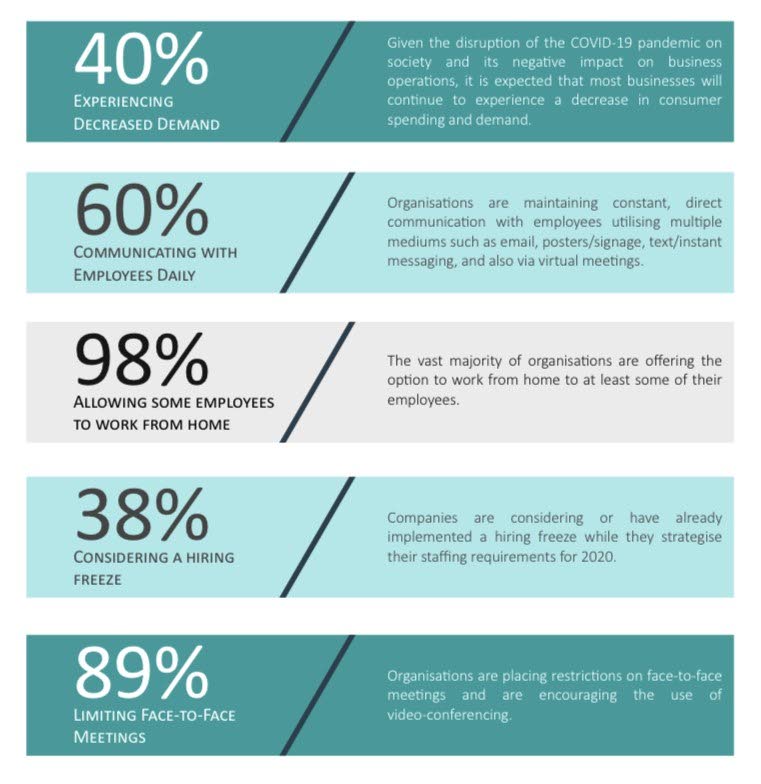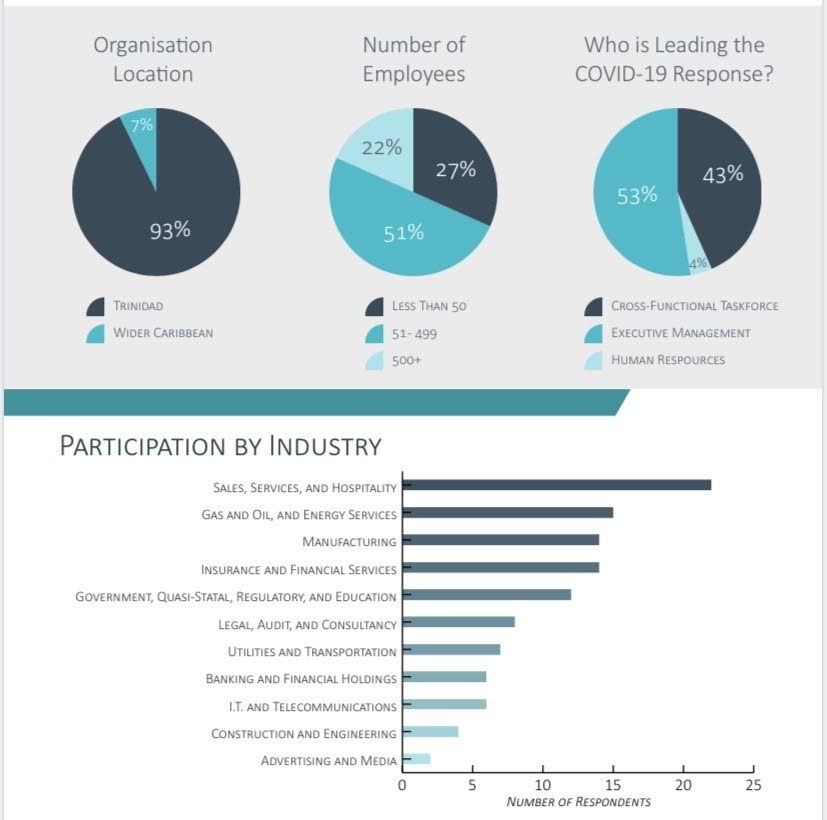Businesses implement hiring freeze

A new survey finds a significant cohort of business leaders and senior human resource managers are considering or have already implemented a hiring freeze at their companies in response to weaker demand for their products and services since the covid19 pandemic began.
Conducted between March 19-25 by HRC Associates, a leading recruitment and management consultancy, the survey revealed that 38 per cent of companies across a broad range of industries have a adopted a wait-and-see approach to staffing requirements, pausing recruitment in the interim.
Forty per cent of the 110 organisations surveyed directly attribute the hiring freeze for 2020 to decreased demand caused by a combination of lower consumer spending and public health orders that have halted business operations completely.
They include bars, restaurants, cinemas, hotels, and casinos where job and financial losses are reportedly already significant.
Still, with business leaders focused on more pressing issues amid the unfolding crisis, the survey found that the majority – some 41 per cent – simply haven’t had the time to strategise around staffing requirements implying the pause in recruitment could deepen in the coming months.

It also means jobs were relatively safe when the survey was completed in March. At the time, 78 per cent of respondents had no plans to retrench employees. But given how quickly the economic situation is evolving, that picture could change by the end of April or early May.
“It’s too early still,” said Hollick Rajkumar, HRC’s managing director who has 30 years’ experience in human resource, executive recruitment, and compensation. “We have to wait on the outcome. We have to get clearer signals of where this thing is going, how long the economy and the society are going to be shut down for, and what is the financial fallout is.”
HRC’s findings appear to jive with what Lara Quentrall-Thomas, chief executive at Regency Recruitment and Resources has been seeing.
Across March and April, she observed most firms pursued alternative work arrangements to mitigate the impact of the pandemic in lieu of widespread layoffs.
Job security increased, for example, at firms where it was possible for employees to work from home, as per 98 per cent of respondents in the HRC survey. Conversely, there was significant job loss in sectors like retail, hospitality, and fast-moving consumer goods.
According to Quentrall-Thomas employers are also choosing to slash pay, benefits and other costs over layoffs and furloughs.
“Definitely, trying to keep people employed is a priority for conscientious employers.”
Still, despite the enlightened approach, Quentrall-Thomas worries that the situation could take a grim turn if the economy remains locked down going into May.

“I really do think if this goes into another month that you’re going to see massive unemployment in TT because so many jobs still cannot be done remotely,” said Quentrall-Thomas.
Along those lines, Rajkumar said HRC will conduct another survey in the coming weeks to track the emerging picture.
Beyond, recruitment considerations, its March survey considered a number of other business impacts due to covid19.
The survey found that 26 per cent of companies experienced supply chain challenges. Twenty-four per cent reported an increase in absenteeism as employees chose to stay at home out of fear of contracting the virus.
One concomitant was an increase in communication between company leaders and staff, with 60 per cent of organisations reporting they have started communicating with employees on a daily basis.
Methodology
HRC Associates surveyed senior human resource professionals and executives representing 110 organisations across all industries in TT and the wider Caribbean region. The exercise was conducted from March 19 to 25, 2020. The survey comprised 17 questions, 15 of which attempted to directly gauge what actions and initiatives companies are undertaking in response to covid19. Given the dynamic circumstances, a repeat survey may be undertaken as the business impact on companies become more evident.

Comments
"Businesses implement hiring freeze"